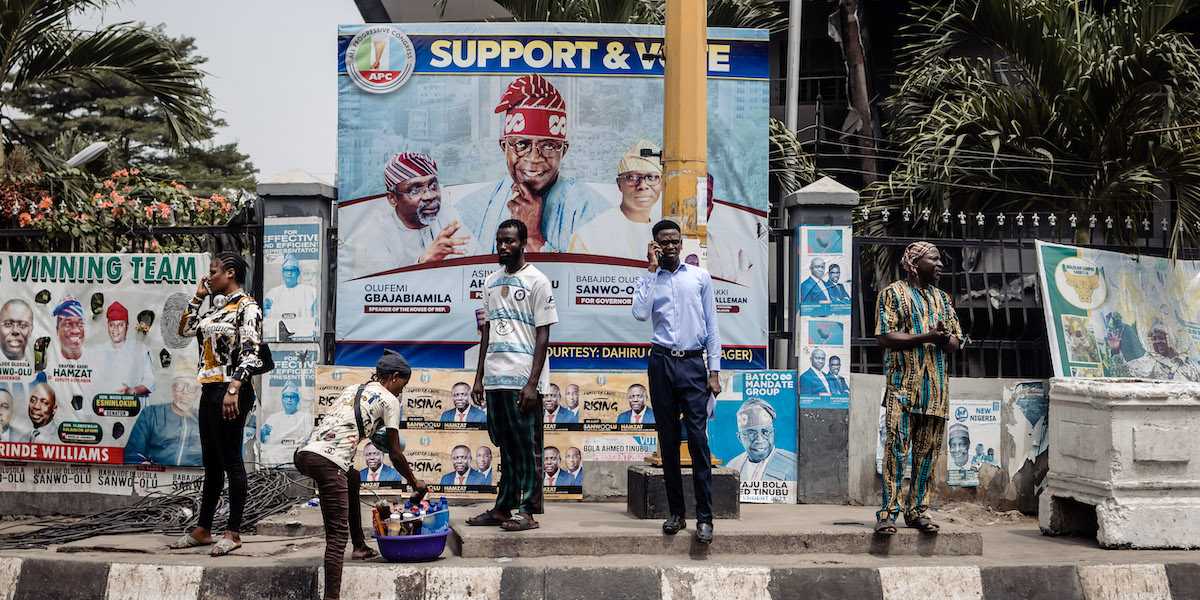The West African country that has shown to be most able to influence the response to the July 26 coup in Niger has been Nigeria, which in addition to being the most influential state in the region also holds the presidency of ECOWAS, the Economic Community of West African States. ECOWAS is the organization that announced an ultimatum to the Nigerien military to restore power to the deposed president. The ultimatum expired on Sunday without any military intervention following: it is not clear what will happen now and the situation is very tense.
This is not unexpected: Nigeria has been West Africa’s most influential state for decades, defining politics and relationships in the region more than any other. In recent years its influence has decreased slightly, mainly due to some problems that arose during the presidency of Muhammadu Buhari, but its size and its economy still allow it to play a central role, for example by controlling railway networks and energy supply systems outside its borders.
Faced with the coup, Nigerian President Bola Tinubu reacted immediately sending several officials to Niger to speak with the military, got in touch with foreign leaders considered close to ECOWAS and immediately convened an emergency meeting of the organization, which imposed economic sanctions against members of the ruling junta.
These actions are also the result of the Nigerian presidency of ECOWAS, which began in July, when Tinubu had said that the organization would not be a “toothless bulldog” and would act very harshly against any coup. After the coup, among other things, Nigeria cut off its electricity supplies to Niger, which it borders to the north, attempting to exert political pressure and causing a series of interruptions current in several Nigerien cities.
Nigerian President Bola Tinubu (AP Photo/Lewis Joly, Pool)
Nigeria, a former British colony, is one of the largest and most important countries in Africa: over time it has been defined as «the Brazil of black Africa» (as the part of Africa south of the Sahara desert is called in common parlance) and «the superpower without power», due to its influence despite i a lot of problems political, economic, security that characterize it. Nigeria is the sixth country in the world by population: it has 218 million inhabitants and is one of the youngest nations ever. It is about three times the size of Italy and is a federal republic with 36 states, divided into over 700 local administrations. It has one of the largest armies in Africa, and is the continent’s largest oil producer.
In addition to Niger, currently Nigeria provides electricity to Togo and Benin, and is gearing up to extend its customer network elsewhere, including in Ghana and the Ivory Coast. A pipeline which passes through Niger connects it to Algeria. Other arrangements have been made for build another gas pipeline linking the Nigerian territory to Morocco. Nigeria has also initiated projects to build railway networks that better connect it to the Niger and ad others countries such as Benin, Togo and Ghana.
Nigeria’s influence in West Africa began to consolidate from the 1960s, the decade in which most African countries gained independence from their colonies. From the outset, the government sought to exert political influence beyond its borders.
During the presidency of Olusegun Obasanjo, between 1999 and 2007, Nigeria contributed, for example, to ending crises that began in countries such as Sierra Leone, where there was a coup d’état in 1997, and Liberia, where between the end of the eighties and the beginning of the nineties a civil war. Nigeria was also able to peacefully resolve territorial disputes involving its own territory, as in the case of the Bakassi peninsuladisputed with Cameroon.
Former Nigerian President Olusegun Obasanjo (AP Photo/Sunday Alamba File)
Finally, Nigeria has also developed one of the continent’s most thriving and popular cultural industries, for example in cinema and fashion. For this reason, Nigeria has often been spoken of as a state capable of exercising «soft power», that is, to increase one’s influence in other countries without using force.
In recent years, however, this power has begun to weaken. Responsibility has been attributed by some analysts to the failed and troubled presidency of former President Muhammadu Buhari, whom Tinubu replaced last February in a hotly contested election.
Buhari’s two-term presidency weakened Nigeria in many ways. Nigerian economic growth has been slower than that of other African countries, internal conflicts have increased, both of an ethnic, political and social nature. Some of these problems have spilled over into neighboring countries, leading some analysts to define Nigeria no longer as a power but as a «exporter of political instability».
Former Nigerian President Muhammadu Buhari (EPA/JUSTIN LANE via ANSA)
Since becoming president, Tinubu has adopted an attitude very hard against the various criminal and terrorist groups present in Nigeria, and at the regional level he has taken clear positions on the need for West Africa to become a stable area, without coups. Tinubu’s goal is also to increase his own internal consensus, at a time when he is at the center of a legal case linked to the contestation of his victory.
– Read also: All the problems of Muhammadu Buhari’s presidency in Nigeria
